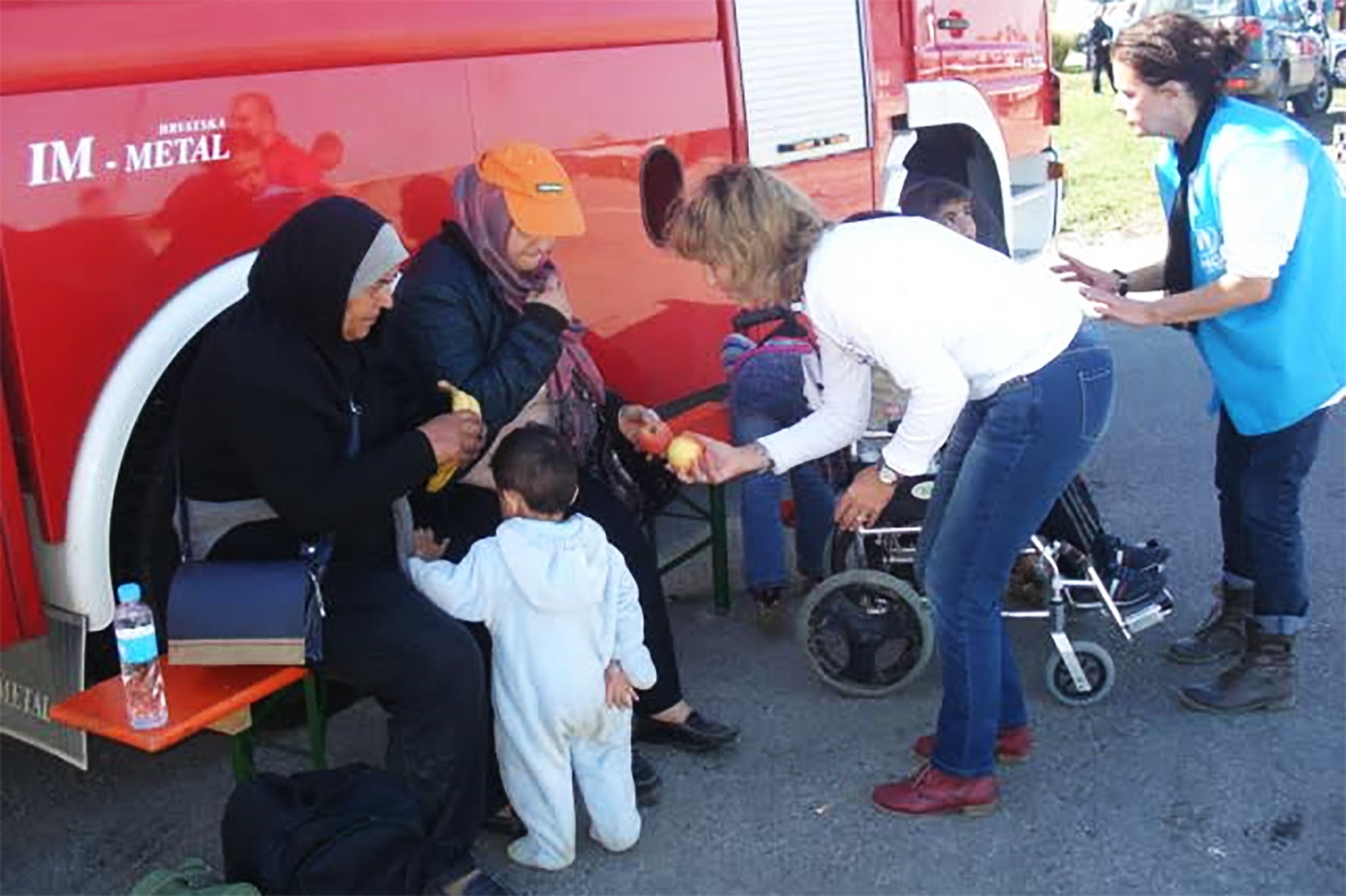MIGRANTS IN CROATIA
Incandescent situation in Balkan Countries: mutual accusations, new walls. But Caritas and local churches testify to a different reality

They want to continue their journey, reach Germany, Austria or Northern Europe. They do not intend to remain in the Balkan countries, where no refugee has applied for asylum. They have not done so in Hungary, Serbia, Croatia nor in Slovenia. They intend to continue further. All they’re asking these countries is to enable them to transit without being stopped at the borders. Ever since, a week ago, the Hungarian government has effectively armoured its borders with Serbia and after the harsh repression by the Budapest police, for the refugees, especially the Syrians, passing through Croatia became a viable option. According to figures released by the Interior Ministry, about 30 thousand refugees arrived on Croatian soil since September 16 last year. It was an unplanned, unexpected inflow for Zagreb that after its initial openness (Prime Minister Zoran Milanovic, in the aftermath of the first arrivals, had declared: “Croatia is ready to receive migrants and refugees”) was eventually forced to change strategy and close its borders. It’s a match that the country is playing together with its Balkan neighbours. Not without tensions and controversies. The Slovenian barrier; Serbian and Croatian accusations. Croatian and Serbian media outlets recently reported that there is also another barrier, that is being erected by the Slovenian police on the border crossing with Croatia, in Bregana. Nonetheless, the exodus of thousands of migrants continues by sea and by land, and the Balkan route continues being the most beaten track. Thousands are stationed along the roads on the border between Croatia and Hungary. The migratory pressure on the borders of countries in the region is causing friction between the respective governments, that are passing the buck and accusing one another. The hopes of men, women, children and old people seem bound to clash against walls, barbed wire and road blocks, such as the stop to heavy vehicles on the border crossing with Serbia in Batrovci-Bajakovo, the only border crossing that was still open, decided by Zagreb a couple of days ago. It’s an “unfair, unfriendly decision that does not contribute to good neighbourly relations”, said the Interior Minister of Serbia Nebojsa Stefanovic, who accused Croatia of being unable to manage the migrants’ emergency as Serbia had done so far. As in a domino effect, Croatian Interior Minister Ranko Ostojic, said Croatia would ask Greece to stop sending migrants to the rest of Europe. “It is absolutely unacceptable to have Greece emptying its refugee camps and sending people towards Croatia”. The commitment of Caritas. In the Croatian town of Tovarnik, near the Serbian border, on Sunday September 20 hundreds of refugees and migrants stormed their way into the few trains available to reach Hungary. The migrants’ odyssey thus continues, along with the commitment of Caritas Croatia, in the front line with its volunteers to bring support. The commitment of the local Church is also conveyed through its actions. In the past days, in conjunction with religions leaders of different confessions in Croatia, including the Muslim community, the bishops compiled a document that appealed to the local population to “welcome these brothers and sisters in need, and provide housing, food, assistance and medical care”. The Croatians, sensitive to these needs, relived their own condition as refugees during the wars of the 1990s, and extended a helping hand. “There is need of everything in the temporary camps where we offer our services, such as Opatova – Suzana Borko, vice-director of Caritas Croatia, told SIR -. Under coordination of the Red Cross we bring food, personal hygiene products, and all basic necessities, especially for children. There is a great need of milk, and we’re also asked for bananas, especially for toddlers who aren’t old enough to chew. There are many emergencies, starting with sanitation – since it’s hard to organize bathrooms and toilets for thousands of people – to healthcare services. Many have stomach problems as they have been eating food stored for a very long time”. A helping hand from the Roma. “The refugees are grateful to the Croatians for everything they receive”, Borko went on. Aid arrived also from those one wouldn’t expect. “The Roma community in the town of Beli Manastir made known they would help clean and set up the camp meant to house the refugees expected to arrive shortly after”. Precious help was also offered by the people of Slavonia, the Croatian region in the northwestern part of the country on the border with Serbia and Hungary, direly hit by the war that tore apart ex-Yugoslavia. “They spontaneously decided to bring water, food, clothing, blankets. They remembered their situation during the war. It was a great token of solidarity, that gave us strength, courage and hope. Many children accompanied by their parents gave toys to their peers. While politics has not always responded efficiently, the population understood that in this situation the human person comes first”.